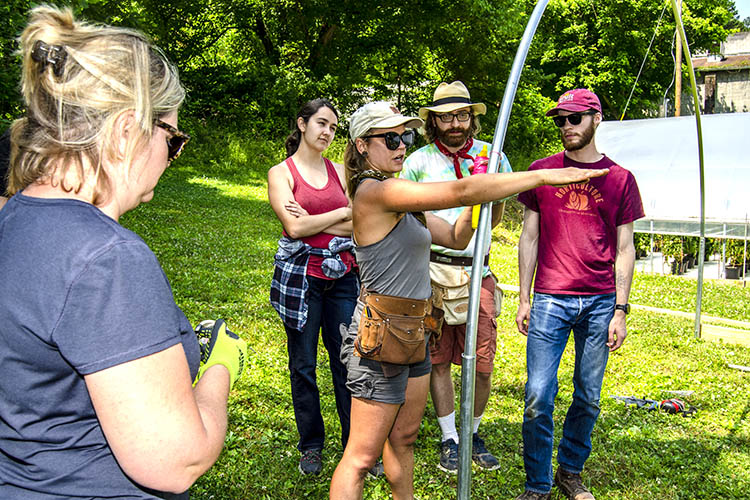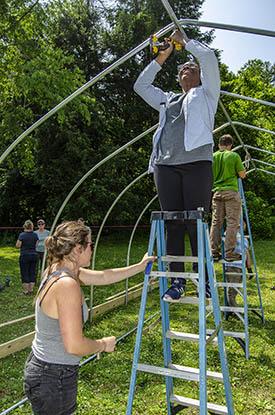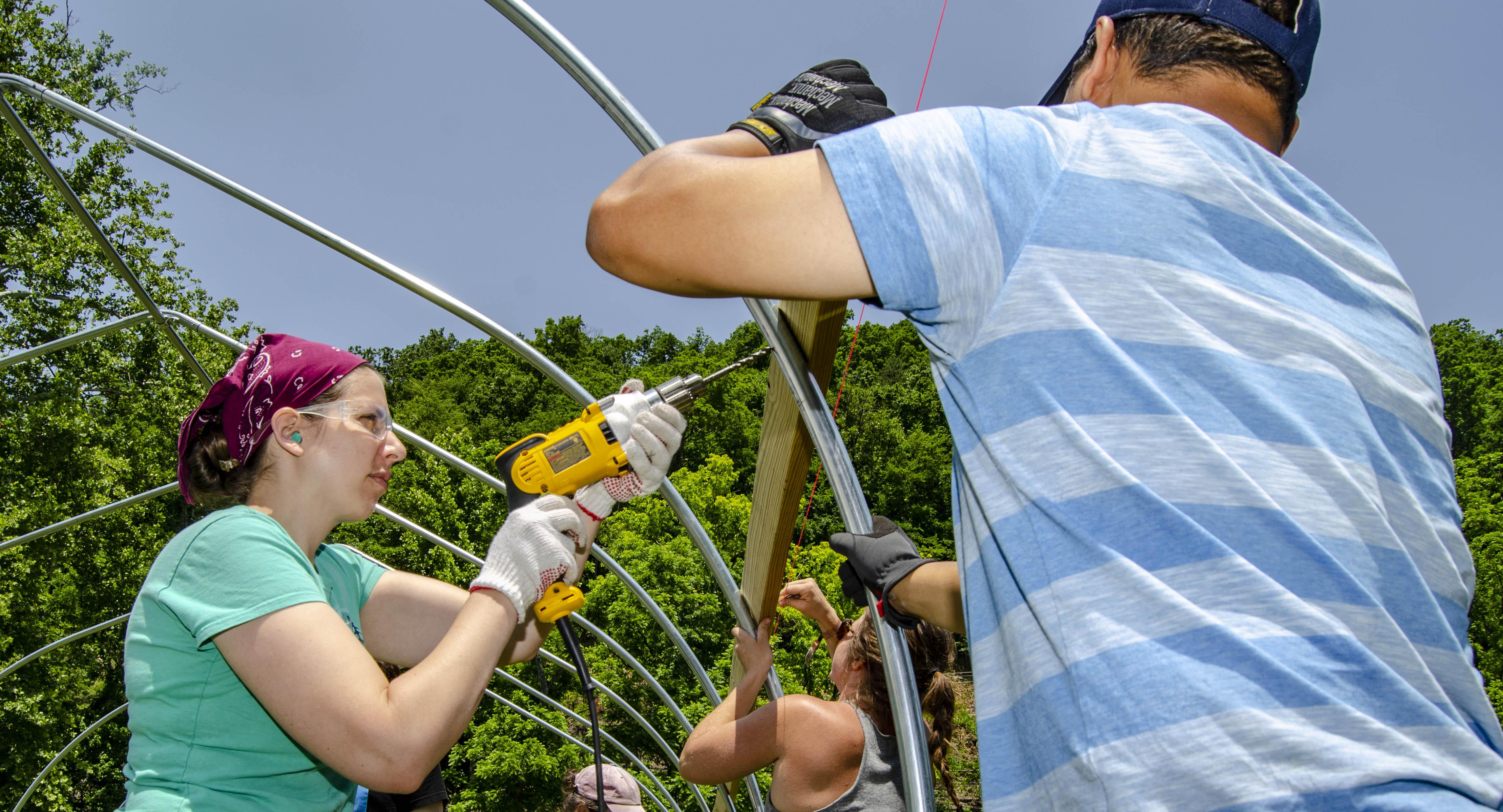Students, faculty from Midwest explore Eastern Kentucky foodways
Students, faculty from Midwest explore Eastern Kentucky foodways

To watch the video, click here.
HINDMAN, Ky., — It’s a long drive from Minneapolis to Kentucky, and almost as long from Manhattan, Kansas. To the folks from the University of Minnesota and Kansas State University who recently converged at the University of Kentucky, it was almost a world away in terms of culture, agriculture and local food systems.
Compared to Midwestern farms with their vast monocultures of corn and soybeans, Kentucky for the most part is dotted with relatively small farms. These get even smaller in terms of acreage in the eastern end of the state, where 30 or 50 acres of land may only give up five or 10 acres of flat, workable ground. Historically, the mountainous geography has forced a certain isolation on its farms and communities.
“That leads to a lot of really interesting foodways and also some interesting agricultural practices,” said Krista Jacobsen, UK associate professor in horticulture in the College of Agriculture, Food and Environment, who hosted the group, which included faculty, staff and students in various horticultural or food systems disciplines at the three schools.
The term foodways describes the intersection between a region’s culture and its agriculture.
“There have been a lot of regions in the South that are focusing on that and trying to understand better how this history and the culture of a region leads to the production methods and the food we eat today,” said Julie Grossman, associate professor in horticulture at the University of Minnesota. “It’s something we don’t think about in the upper Midwest, but the South has a lot of really innovative and interesting examples to offer in terms of the region’s foodways.”
Part of a short course on Appalachian culture and agriculture, which in turn was part of a larger research project led by Grossman and Jacobsen to study the effect of cover crops on soil health in high tunnels, the field experience began in Lexington. They spent a day working with the Community Supported Agriculture program at the UK Horticulture Research Farm and learned about the high tunnel work going on there. The next day, the group headed to Berea to learn about sustainable practices at the Berea College farm and to speak with local farmer and retired Berea College professor Bill Best about the mountain traditions of seed saving with beans and tomatoes.
“This was one of the richest parts of the country for seed saving. They were family beans, because they were kept through kin lines for generations,” Jacobsen said.
After a stop at the Laurel County African American Heritage Center in London, the group wound their way further back into the hills to the Hindman Settlement School. The school was established in 1902 and was the first rural settlement school in America. Today it offers courses, programs and services designed to improve the lives of the people in the area and preserve the literary and cultural heritage of the region.
 Over the next couple of days, they visited the school’s farm, participated in the annual Appalachian Family Folk Gathering and erected a high tunnel at the school with instruction from Kayla Preston from Grow Appalachia. The structure will be used as a living laboratory to teach people how to raise food for their families. That’s part of the mission of Grow Appalachia, a nonprofit organization that works with partner sites, like the settlement school, to combat malnutrition and provide assistance and support for families wanting to grow their own food.
Over the next couple of days, they visited the school’s farm, participated in the annual Appalachian Family Folk Gathering and erected a high tunnel at the school with instruction from Kayla Preston from Grow Appalachia. The structure will be used as a living laboratory to teach people how to raise food for their families. That’s part of the mission of Grow Appalachia, a nonprofit organization that works with partner sites, like the settlement school, to combat malnutrition and provide assistance and support for families wanting to grow their own food.
Jacobsen has worked with Grow Appalachia on high-tunnel related projects for several years.
“Where the grant piece is focused on high-tunnel production and we’re talking also about the foodways in this region, doing a high tunnel build with Grow Appalachia was a natural fit for this project that merged the research focus with the educational outcome,” she said.
UK senior Hannah Magney, who is working on a dual-degree in sustainable agriculture and community and leadership development, was impressed with what she saw during her first stay in Eastern Kentucky.
“I want to use food to build connection points for people to fix things in their communities,” she said. “Looking at Eastern Kentucky, it has a bad rep about being in a rough spot and the people are poor and depressed, and yet what I see here is that people are really strong.”
Grossman was glad the students were picking up on that.
“They got to see these positive examples of all the amazing things that are happening to help reintroduce the foodways that have existed in this region for a long time,” she said. “I hope my students in Minnesota will think about how they could fit what they’ve learned into their own food systems in the upper Midwest.”
Ashlee Skinner, a graduate student in horticulture at Kansas State spent much of the day on a ladder, screwing self-locking screws into the tunnel’s metal rafters. She labored hard at the first one, but by the end of the day, she was a pro at it. It was just one of the lessons she was going to take home from the experience.
“This trip has been amazing for me,” she said. “I’ve had such a great time seeing the diversity of crops grown here and the history behind them. I want to take back with me the love that’s here in Kentucky and that sense of community, which is so important in what we’re doing. Horticulture is not just about growing food; it’s about growing community.”

Horticulture



